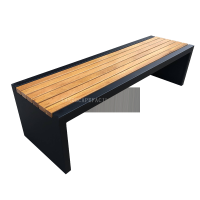Welcome to the website for landscape facilities products and knowledge.
How do landscape bar counters incorporate sustainable or eco-friendly materials without compromising quality?
The integration of sustainable materials in landscape bar counters has become a hallmark of modern, eco-conscious design. With advancements in material science and manufacturing, it is entirely possible to incorporate eco-friendly elements without compromising on durability, functionality, or visual appeal. The key lies in selecting materials that are both environmentally responsible and performance-driven.
Recycled glass countertops, for instance, offer a striking aesthetic while utilizing post-consumer or post-industrial glass. These surfaces are highly durable, non-porous, and resistant to stains, making them ideal for outdoor bars. Similarly, reclaimed wood brings character and history to a bar counter. Sourced from old barns, factories, or bridges, this wood is often more stable and durable than new timber due to its age and previous weathering. When properly treated and sealed, it withstands outdoor elements beautifully.
Bamboo is another excellent choice. As a rapidly renewable resource, bamboo grows much faster than traditional hardwoods. When compressed and laminated, it becomes a hard, resilient material suitable for bar tops. Its natural resistance to moisture and insects adds to its suitability for landscape settings.
Recycled metals, such as aluminum or stainless steel, can be used for structural elements or accents. These materials are not only recycled but also fully recyclable at the end of their life, supporting a circular economy. For concrete counters, incorporating recycled aggregates or using fly ash—a byproduct of coal combustion—reduces the carbon footprint significantly without affecting the concrete's strength or finish.
Beyond material selection, the manufacturing processes play a crucial role. Choosing locally sourced materials reduces transportation emissions. Opting for products with low-VOC (Volatile Organic Compound) sealants and finishes improves indoor and outdoor air quality. Moreover, partnering with manufacturers who adhere to sustainable practices ensures that the entire product lifecycle is environmentally considered.
Maintenance is also a factor where sustainability and quality intersect. Durable, eco-friendly materials often require less frequent replacement or repair, reducing long-term waste. For example, a high-quality sealed reclaimed wood counter can last for decades with minimal upkeep.
Ultimately, the perception that sustainable means lower quality is outdated. Today's eco-friendly materials meet, and sometimes exceed, the performance standards of their conventional counterparts. By thoughtfully selecting materials based on their life cycle assessment, environmental impact, and performance characteristics, designers and homeowners can create beautiful, functional, and responsible landscape bar counters that stand the test of time.
Related search:

Recommendation
Modern Stainless Steel Begonia Wood Park Chair Outdoor Courtyard Leisure Sun Protection Bench Long Seat